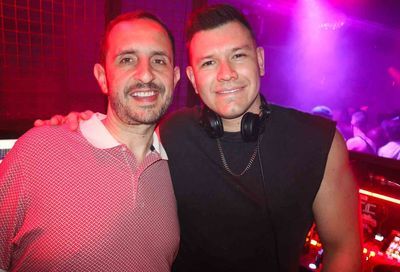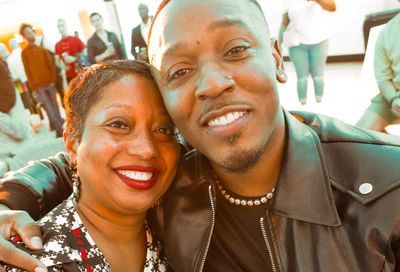Time To Act
Center Field
I am a great proponent of making the case for marriage equality. As the battle in D.C. heated up this past spring and summer, I was Mr. Talking Points, responding to the lies of marriage opponents by condensing arguments for local canvassers who were fanning out across the city. These efforts to educate and persuade should continue. But we cannot wait until the last person is won over. We have the momentum, our legislature is ready, and it is time to act.
On Sept. 4, I went to the campus of Morgan State University in Baltimore for a discussion on homosexuality at public radio station WEAA. I faced a Seventh Day Adventist minister who explained that his faith prevents him from supporting same-sex marriage, but he supports civil unions. I said that separate is inherently unequal, that he had no monopoly on faith, and that he was effectively calling for government establishment of religion in violation of the First Amendment.
We did not convince each other. The minister made the usual claim that we seek to change an institution that has been unchanged for millennia, so I pointed out one example of civil marriage being changed, specifically the 1967 Supreme Court ruling in Loving v. Virginia overturning state anti-miscegenation laws. I raised this despite being at a historically black university and knowing that the comparison to interracial marriage does not poll well with African Americans. I did so because the legal parallels are strong and this is more than a campaign — this is my life.
The studio phones lit up with callers objecting to ”equating” the gay rights struggle with the black civil-rights struggle. I said that ”compare” is not the same as ”equate,” and acknowledged the differences between the two struggles — though I also pointed out that they do not represent two distinct communities, since the gay population and the black population overlap. I said the bottom line is that my partner Patrick and I (speaking of interracial couples) are entitled to equal protection.
One caller, contending that homosexuality is a choice, said gays are not a legitimate minority. But religion is a choice, and people still enjoy a right to its free exercise. I noted that civil-rights veteran Rep. John Lewis (D-Ga.) strongly supports marriage equality, and that no group in Congress has a better pro-gay voting record than the Congressional Black Caucus.
Callers were unmoved. Finally I said, ”Look, if you want to be mad, then you’ll just have to be mad. My life clock is ticking. We’ve been working on marriage rights a long time, we have the votes in the majority-black D.C. Council, and we’re going ahead.” Frankly, the jealousy and resentment by some minorities toward others is senseless and self-defeating given the common threats we face. However varied our backgrounds, we must learn to coexist as equal citizens.
Jonathan Chait writes in the Sept. 23 issue of The New Republic, ”The fetishization of compromise often overlooks whether such a compromise makes any inherent sense. Not all issues lend themselves to compromise.” He is criticizing Blue Dog Democrats on health care, but the same principle applies to marriage. Chait says, ”Splitting a baby is actually a bad thing.”
If D.C. had no protections for gay families, the baby-splitters would propose civil unions or domestic partnerships as a compromise. But we already have domestic partnerships. Marriage is the next logical step toward equality.
Given that domestic partnerships have virtually the same protections as marriages under District law, upgrading to marriage will be largely symbolic until the federal Defense of Marriage Act is repealed. But marriage is a particularly powerful symbol. It is a central social institution whose meaning is understood by all, unlike non-marriage alternatives.
Aware of the constitutional power the U.S. Congress holds over the District, the D.C. Council held a dry run last spring with a bill recognizing same-sex marriages from other jurisdictions. That bill’s passage into law without congressional interference gives hope that Congress will not overturn a D.C. marriage-equality bill.
As one who counseled caution over the years, I never said we should wait until there was no risk. I said we should wait until we had a fighting chance. Now is that moment. We have followed our plan and built our bridge to marriage equality. Now we must cross it.
Richard J. Rosendall is a writer and activist whose work has appeared on Salon.com and the Independent Gay Forum. He can be reached at rrosendall@starpower.net.
Support Metro Weekly’s Journalism
These are challenging times for news organizations. And yet it’s crucial we stay active and provide vital resources and information to both our local readers and the world. So won’t you please take a moment and consider supporting Metro Weekly with a membership? For as little as $5 a month, you can help ensure Metro Weekly magazine and MetroWeekly.com remain free, viable resources as we provide the best, most diverse, culturally-resonant LGBTQ coverage in both the D.C. region and around the world. Memberships come with exclusive perks and discounts, your own personal digital delivery of each week’s magazine (and an archive), access to our Member's Lounge when it launches this fall, and exclusive members-only items like Metro Weekly Membership Mugs and Tote Bags! Check out all our membership levels here and please join us today!





















